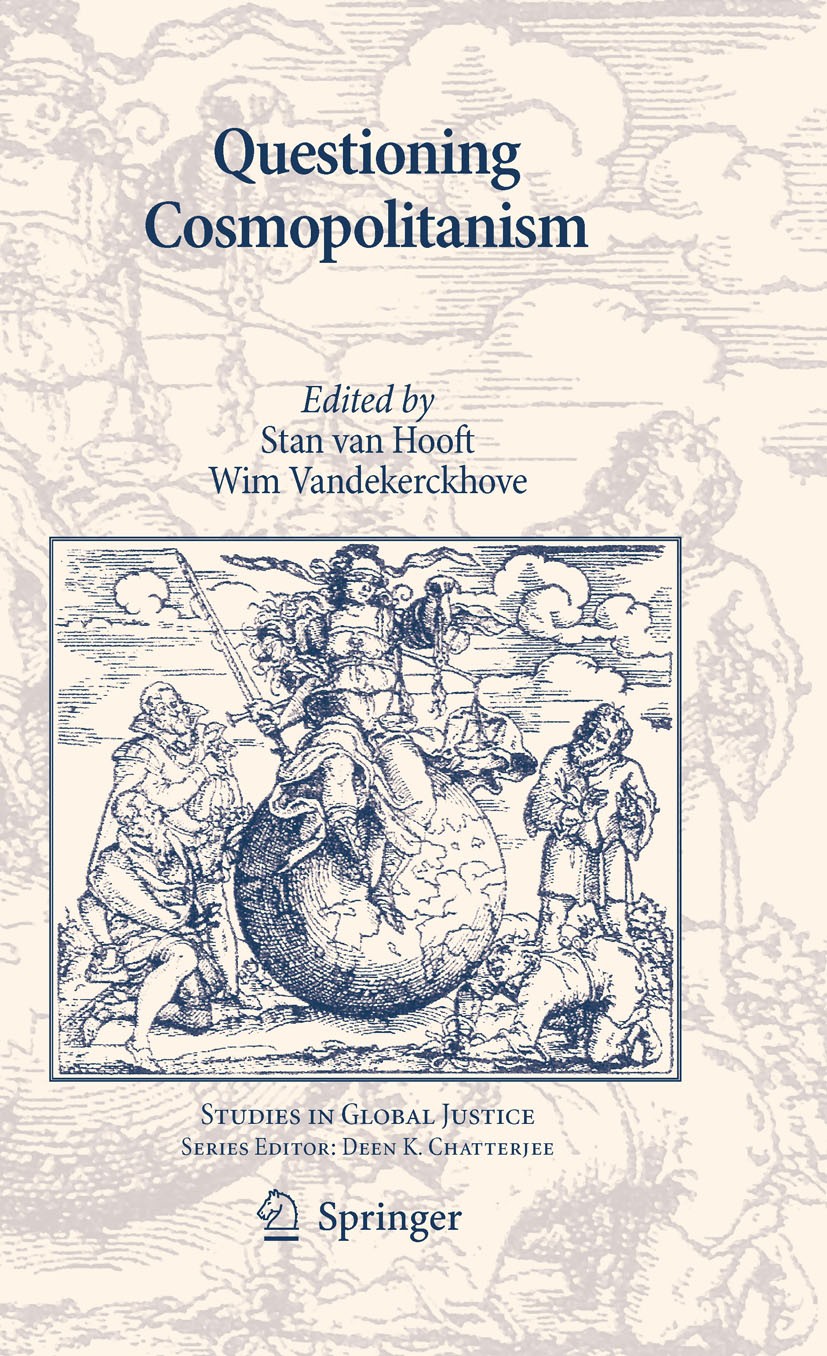| 书目名称 | Questioning Cosmopolitanism |
| 编辑 | Stan Hooft,Wim Vandekerckhove |
| 视频video | http://file.papertrans.cn/782/781816/781816.mp4 |
| 概述 | Contains the very latest in research on cosmopolitanism as a concept in political philosophy and in ethics.Presents the work of the world’s leading scholars in this field.Written in a style accessible |
| 丛书名称 | Studies in Global Justice |
| 图书封面 |  |
| 描述 | Wim Vandekerckhove and Stan van Hooft The philosopher, Diogenes the Cynic, in the fourth century BCE, was asked where he came from and where he felt he belonged. He answered that he was a “citi- 1 zen of the world” (kosmopolitês) . This made him the rst person known to have described himself as a cosmopolitan. A century later, the Stoics had developed that concept further, stating that the whole cosmos was but one polis, of which the order was logos or right reason. Living according to that right reason implied showing goodness to all of human kind. Through early Christianity, cosmopolitanism was given various interpretations, sometimes quite contrary to the inclusive notion of the Stoics. Augustine’s interpretation, for example, suggested that only those who love God can live in the universal and borderless “City of God”. Later, the red- covery of Stoic writings during the European Renaissance inspired thinkers like Erasmus, Grotius and Pufendorf to draw on cosmopolitanism to advocate world peace through religious tolerance and a society of states. That same inspiration can be noted in the American and French revolutions. In the eighteenth century, enlig- enment philosophers such |
| 出版日期 | Book 2010 |
| 关键词 | Cosmopolitan freedom; Cosmopolitan stranger; Cosmopolitan vision; Cosmopolitanism; Fetishism of identity |
| 版次 | 1 |
| doi | https://doi.org/10.1007/978-90-481-8704-1 |
| isbn_softcover | 978-94-007-1565-3 |
| isbn_ebook | 978-90-481-8704-1Series ISSN 1871-0409 Series E-ISSN 1871-1456 |
| issn_series | 1871-0409 |
| copyright | Springer Science+Business Media B.V. 2010 |
 |Archiver|手机版|小黑屋|
派博传思国际
( 京公网安备110108008328)
GMT+8, 2026-1-19 09:16
|Archiver|手机版|小黑屋|
派博传思国际
( 京公网安备110108008328)
GMT+8, 2026-1-19 09:16


